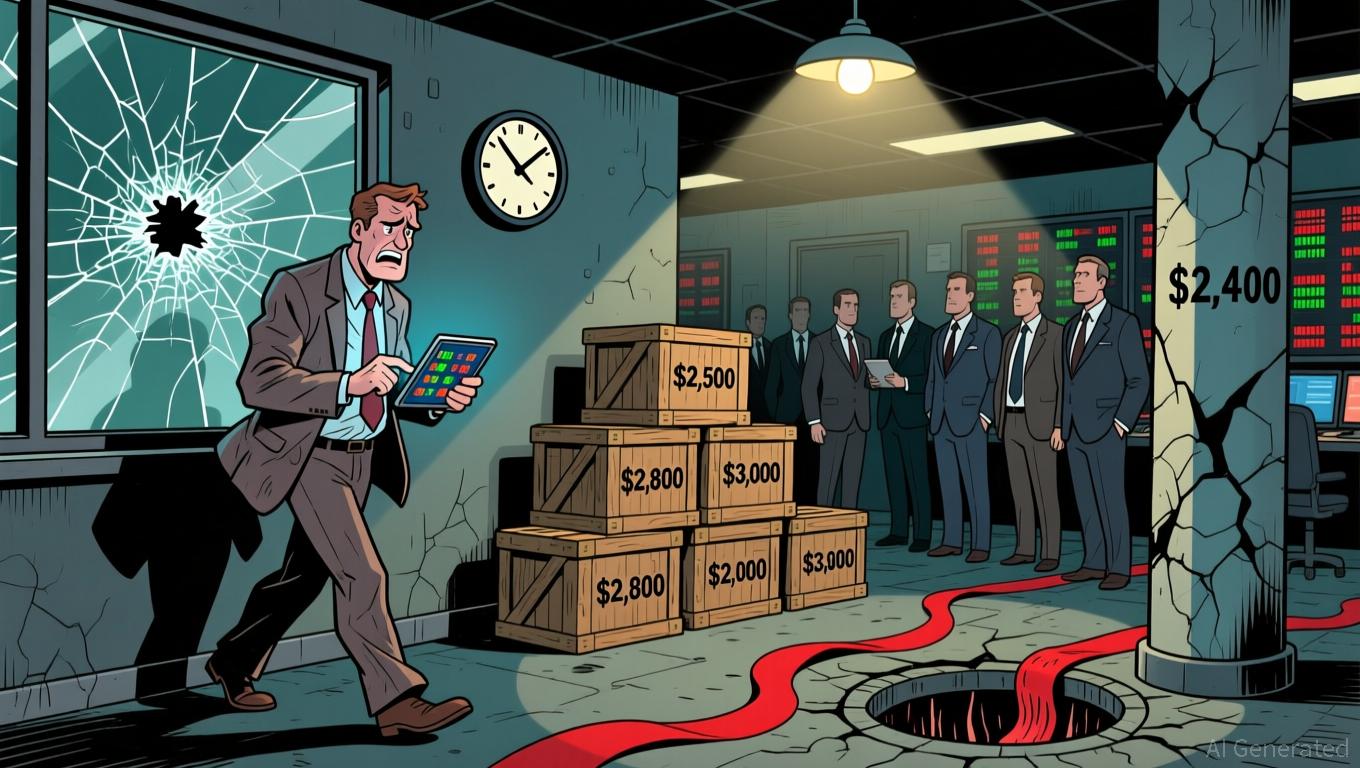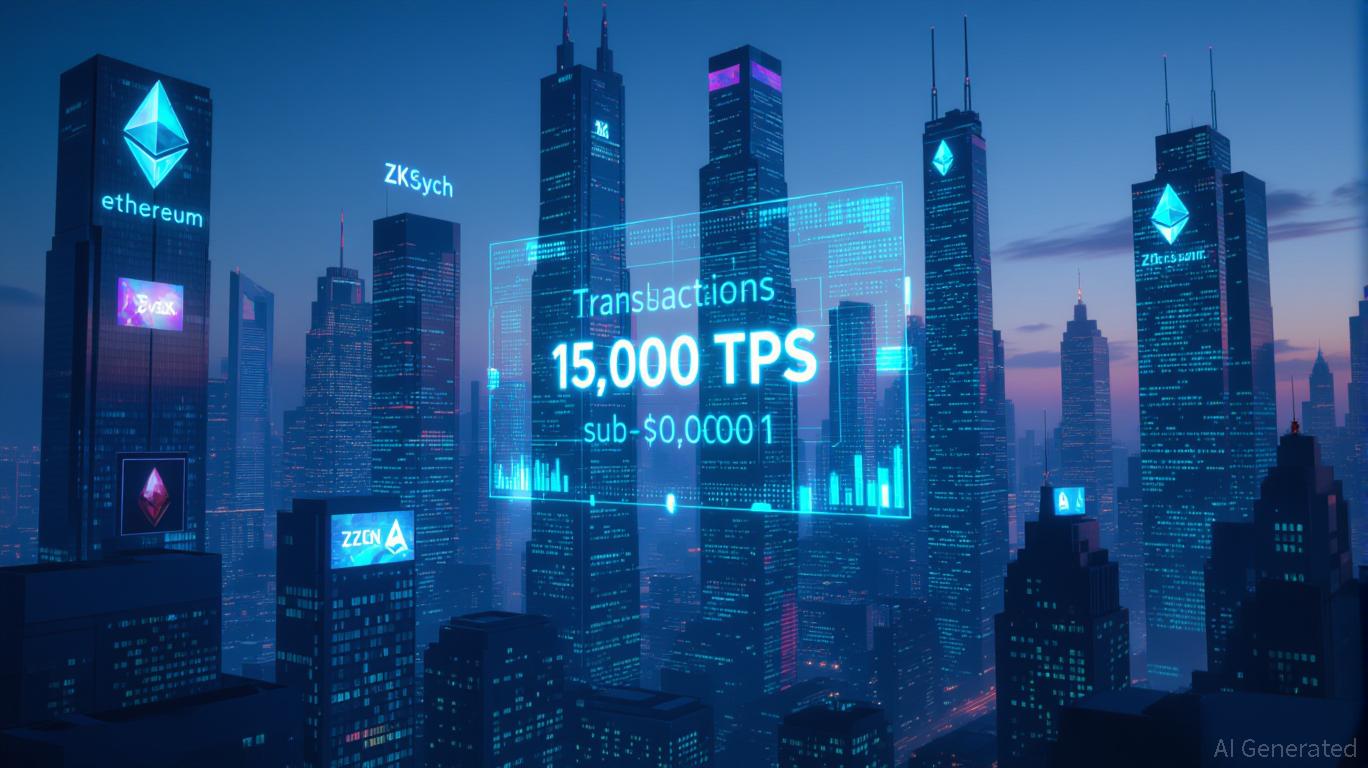North Korea's Digital Trojan Horse: Crypto Firms Infiltrated to Fund Nuclear Ambitions
- A U.S. intelligence officer warns North Korea has infiltrated 15-20% of global crypto firms to fund nuclear programs, exploiting remote workers in developing nations as intermediaries. - Pyongyang operatives use 20% earnings-sharing schemes to recruit freelancers on platforms like Upwork , installing malware to access U.S. infrastructure while evading sanctions. - The U.S. Treasury reports $3B stolen in crypto over three years, with North Korea leveraging stolen IP and embedded workers to maintain long-t
An intelligence officer from SEAL Team has disclosed that North Korean operatives have penetrated between 15% and 20% of cryptocurrency companies worldwide, a rate significantly exceeding earlier assumptions. This revelation, shared by Pablo Sabbatella, the founder of Web3 security firm opsek and a member of the Security Alliance, highlights the escalating danger posed by North Korea’s cyber-espionage activities. Sabbatella
Their methods are highly advanced. Due to global sanctions, North Korean hackers cannot apply for jobs directly, so they
The financial impact is substantial. The U.S. Treasury
Sabbatella pointed out the sector’s susceptibility, noting that many crypto founders have weak operational security (OPSEC). “Most are fully doxxed, fail to protect private keys adequately, and are easy targets for social engineering,” he stated
These disclosures come as tensions on the Korean Peninsula intensify. North Korea recently
South Korea’s newly elected President, Lee Jae Myung, is confronted with the dual task of pursuing diplomatic engagement with Pyongyang while advancing military upgrades. Although he has halted anti-North broadcasts and reopened communication lines,

The wider geopolitical environment is evolving. North Korea’s partnerships with Russia and China, which include a mutual defense agreement and troop deployments to Ukraine,
As the cryptocurrency industry contends with North Korean infiltration, these events underscore the complex links between cybercrime, international politics, and economic conflict. For South Korea, the challenge lies in balancing deterrence with dialogue, all while protecting its technological and financial systems from threats posed by both state actors and independent groups.
Disclaimer: The content of this article solely reflects the author's opinion and does not represent the platform in any capacity. This article is not intended to serve as a reference for making investment decisions.
You may also like
XRP News Today: Abu Dhabi’s Green Light Establishes UAE as a Pioneer in Stablecoin Development
- Ripple's RLUSD stablecoin gains Abu Dhabi regulatory approval as UAE advances digital finance leadership. - ADGM's "Accepted Fiat-Referenced Token" designation enables institutional use for lending and cross-border payments. - RLUSD's $1.2B market cap growth reflects institutional demand, backed by USD reserves and dual blockchain operations. - UAE's ADGM-DIFC regulatory synergy attracts global fintechs , with Ripple expanding partnerships across Africa and Asia. - Regulatory milestones position RLUSD to
Ethereum Updates: Ethereum Drops to $2,800, Prompting Surge in Demand for ZKP's Hardware-Based Presale
- Ethereum's price fell below $2,800, triggering $6.5M liquidations and testing critical support levels amid declining on-chain demand metrics. - Institutional players like BitMine accumulated 3.62M ETH (~$10.4B) despite the selloff, signaling long-term bullish conviction. - ZKP's hardware-driven presale gained traction with $17M in ready-to-ship Proof Pods and Miami Dolphins partnership for privacy-focused sports analytics. - Mutuum Finance's $19M DeFi presale and ZKP's auction model with $50K wallet caps

Vitalik Buterin Supports ZKsync: What This Means for Layer 2 Scaling
- Vitalik Buterin endorsed ZKsync in late 2025, highlighting its "underrated and valuable" work alongside the Atlas upgrade achieving 15,000 TPS and $0.0001 fees. - ZKsync's zero-knowledge rollups and EVM compatibility enabled institutional adoption by Deutsche Bank , Sony , and Goldman Sachs for cross-chain and enterprise use cases. - The Fusaka upgrade aims to double throughput to 30,000 TPS by December 2025, positioning ZKsync to compete with Polygon zkEVM and StarkNet in Ethereum's Layer 2 landscape. -

The ZK Atlas Enhancement: Revolutionizing Blockchain Scalability?
- ZKsync's 2025 Atlas Upgrade achieves 15,000–43,000 TPS with sub-1-second finality, addressing Ethereum L2 scalability bottlenecks via Airbender proofs and modular OS. - DeFi protocols like Aave and Lido leverage ZKsync's $0.0001/tx costs to unify liquidity, while Deutsche Bank and Sony adopt its trustless cross-chain infrastructure for compliance and transparency. - ZK token surged 150% post-upgrade, with TVL hitting $3.3B and analysts projecting 60.7% CAGR for ZK Layer-2 solutions by 2031 amid instituti
